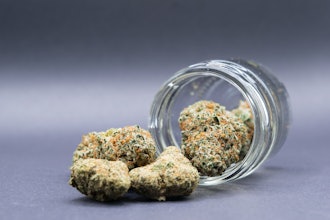
A rare liver enzyme could be the reason some people fail to experience a high after ingesting marijuana products, scientists believe.
The Boston Globe this week detailed the possible explanation for why some people are “ediblocked” — they don’t feel the same high as typical users even after, in some cases, consuming many, many more milligrams of the high-inducing compound tetrahydrocannabinol.
Dr. Staci Gruber, who directs the Marijuana Investigations for Neuroscientific Discovery at McLean Hospital in suburban Boston, told the Globe that a gene known as CPY2C9 is behind the enzyme that helps metabolize THC. For some with a rare subtype of that gene, however, the process could essentially be too efficient: metabolizing THC into a waste product before the high-causing metabolite can enter the bloodstream.
Although the condition is inconvenient for recreational users, the potential reasons behind it could have significant implications for the marijuana industry. The hypothesis stems from recent studies showing that people with different enzymes had far different levels of THC in their blood.
If that’s the case, it could cast doubt on biological tests in medical and law enforcement analyses. People with the enzyme in question are also less likely to benefit from marijuana’s medical benefits. And the report comes as some states seek to crack down on THC content in marijuana products.
The mystery also reflects scientists’ extremely limited understanding of how the body interacts with cannabis.
“We’re only just now starting to understand the cannabinoid system,” Gruber told the Globe. “And it’s already clear that it’s not just about what and how much you’re using — it’s about how you’re wired.”






















